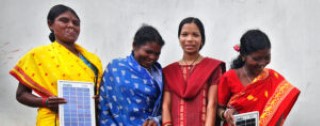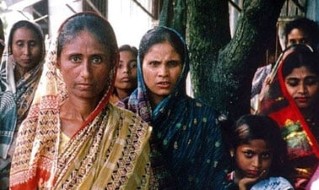Gender Equality and Human Rights in Climate Action and Renewable Energy
This self-paced e-course provides an overview of the interlinkages between gender, human rights, climate change, and renewable energy. It provides participants with the specific knowledge and tools to integrate and implement gender equality in renewable energy access and entrepreneurship, as well as related gender-responsive and human rights-based approaches in climate change mitigation and adaptation measures.
The deep-rooted and far-reaching impacts of climate change make it one of the most defining challenges in the world today. The impacts of climate change manifest in primary effects such as increased frequency and magnitude of extreme weather events like droughts, storms and floods. However, it is the negative secondary effects that often go overlooked, especially for those who already experience inequalities, including women, youth, the elderly, persons with disabilities and minority groups.
Multiple and intersecting social inequalities affect the ability of marginalized groups to adapt to a changing climate, excluding these groups from decision-making processes at household, community, and national levels. They also prevent them from taking hold of the opportunities that low-emissions, climate-resilient development brings towards improved livelihoods, particularly in sectors like renewable energy that also have the potential to improve the socio-economic wellbeing of women.
This self-paced e-course provides an overview of the interlinkages between gender, human rights, climate change, and renewable energy. It provides participants with the specific knowledge and tools to integrate and implement gender equality in renewable energy access and entrepreneurship, as well as related gender-responsive and human rights-based approaches in climate change mitigation and adaptation measures.
After completing the course, participants will be able to:
The course is of particular interest to the following audiences:
Level 1: Each module in the course has a final quiz to assess participants’ understanding of the content. Participants will receive a completion badge via email upon successful completion of each quiz.
Level 2: Participants who pass all the final quizzes within their learning pathway will receive a UN certificate of completion, where successful completion will require a score of 70% or higher with a maximum of 3 attempts at each quiz. Upon successful completion of the quizzes, participants will be able to download their certificate – or their 2 certificates if they followed all three modules – from the “Certification” section of the course’s webpage.
User Reviews
Be the first to review “Gender Equality and Human Rights in Climate Action and Renewable Energy”
You must be logged in to post a review.







There are no reviews yet.